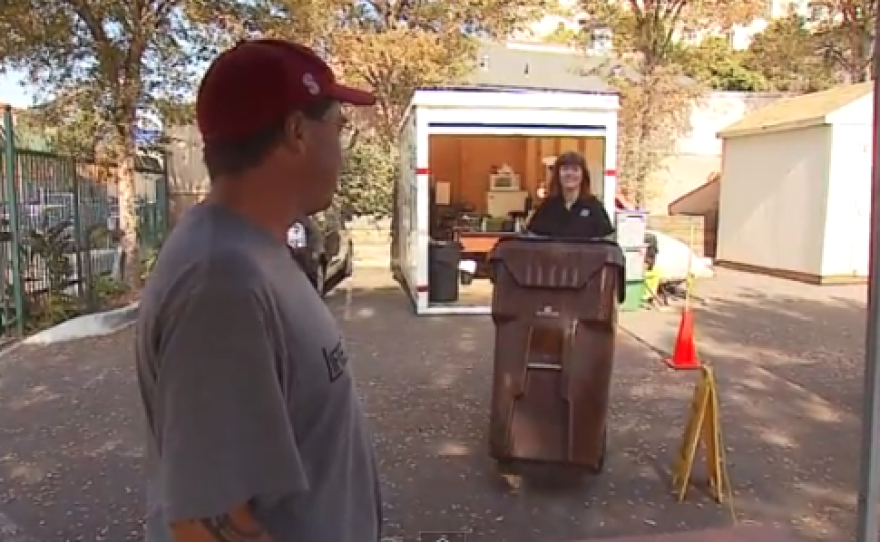Airport security requires all passengers to hold on to their bags and not leave them unattended, even when going to the restroom. So, imagine the hassle of having to carry around all of your possessions at all times because you're homeless. It's a common problem on the streets of San Diego and across the country.
"If you were to see me walking down the street, nine out of 10 times you wouldn't know I was homeless," David Stimers said. He came to San Diego from Wisconsin 19 months ago. His hopes of landing a job fell through and he's been living on the streets ever since.
Stimers now volunteers at the Transitional Storage Center at 1610 Commercial Street downtown. That's where 300 brown bins keep an estimated 30,000 pounds of homeless possessions off the streets. Stimers likes to travel light and uses his bin to store clothes, shaving cream, a tooth brush and paste and what he calls his home in a bag.
"Literally my closet, my bedding, in a sense my bathroom, because it has my tooth brush and comb in it. Whatever you need in an average day, I stick right in here," the 39-year-old Stimers said.
The Storage Center has made a huge difference, especially in the East Village, where many homeless people gather.
"People with businesses and store fronts have noticed people aren't loitering around, their stuff isn't on the sidewalk and it really has cleaned up the streets," said Noor Kazmi, an attorney who works downtown.
Kasmi is also president of Girls Think Tank. The San Diego organization took over responsibility for the storage center in June.
The center is also called the "Water Man Storage Check-in Center," named after David Ross, who handed out bottles of water to people living on the streets. Two-thirds of the clients are women and seniors and 20 percent are military veterans.
The group had to move to a temporary site provided by Father Joes Villages this month.
"The old facility on 9th Avenue was slated for redevelopment and had to be closed down and we had to basically leave everything," Kazmi said.
And just like the clients they serve, the Transitional Storage Center is now looking for a home. They got overwhelming support from City Council, along with a $39,000 donation, to keep operating through June.







